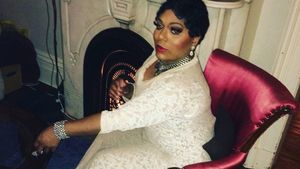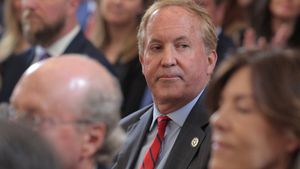Aspiring filmmakers are almost as common as starlets in Los Angeles. People come to LA with a dream and do just about anything to make it happen. Like any industry, there are gatekeepers that red light or green light these dreams. Recently I sat down one to get the inside scoop on how it feels to wear those shoes.
Roberta Munroe, formerly head of shorts programming for Sundance and author of the popular book, How Not to Make a Short Film talked openly about festival entries, publishing deals and party season.
Where are you originally from?
Toronto, Canada. I then spent several years in New York before settling in Los Angeles.
Give me an overview of your career path.
In my 20s, I worked for the AIDS foundation in Toronto where I was introduced to someone at the G&L Film Festival. I’ve always been a writer, but I was also a secret filmmaker. I took a job as assistant to the festival director. As the program grew, she gave me more operational experience – overseeing volunteers, submissions, etc. Because there were just two of us, I began programming too and during this time I met tons of people. I did a stint at Viacom, the Toronto Film Festival, New Fest in New York, programmed IFP Market. I then moved to Los Angeles to work for Outfest and the Los Angeles Film Festival. I started my consulting firm, and then Sundance came knocking. I worked as the shorts programmer at Sundance for five years. Since then, I’ve published my first book; How Not to Make a Short Film and I tour as part of the Harper Collins Speakers Bureau.
How did you conceive of the book?
I would see films that were almost great. If only they had a better lead, better music, a different edit. With the heightened paranoia around Sundance, I couldn’t tell filmmakers, as it would be viewed as a conflict of interest. It was painful sometimes, as it was really obvious that a simple shift could make a film markedly better. I decided to transfer all that experience into a book.
more on next page...
\\\
(continued)
Sundance is the Holy Grail for filmmakers. With over 5,000 submissions annually, is it a lot of pressure to program for that festival?
Yes, it was demanding, but incredibly rewarding to interact with so many talented people on all fronts. If I met certain filmmakers in the world or they emailed me directly then I would occasionally give them feedback, however I didn’t want to influence their project too much. I stayed five years, but reached a place where I had learned as much as I wanted to learn. And truthfully, programming is a ton of work and doesn’t pay very well.
And just like top tier anything, you should choose your friends wisely. Now I can go to cocktails parties in December and not worry about homicidal filmmakers that might corner me!
JD Disalvatore and Roberta Munroe
Why do you prefer shorts?
I admire the luxury of storytelling in short form. It’s an exquisite and luxurious form of art. And the emotional investment you make for a year is better than the two-plus you have to make for a feature. Then you get to travel the world with your art (going to festivals). I think there is something wonderful about people’s ability to tell you a story and tap into your emotions in such a short amount of time.
more on next page...
\\\
(continued)
How do they feel about Queer themed films? Does it help?
Sundance is one of the gayest mainstream festivals. Much of the programming staff is gay, so they certainly won’t steer away from queer content. They strive to aggregate the best quality programming and support the best the careers of these filmmakers, which can be a complicated balance at times.
What is your book about?
It started when I outlined for someone why his film got rejected from Sundance. I realized just how much insider information I had acquired in my tenure as a programmer and wanted to make resource for filmmakers. It covers story structure, to crewing up, to post, getting into festivals, securing distribution and everything in between. I interviewed top people at Sundance for the book.
Give me the top 3 tips for hopeful filmmakers
1. Be a team player (ideally) or be a good team leader who can inspire others to join or contribute in various ways.
2. Possess an ability to surround yourself with great people.
3. Have an absence of ego. Filmmakers who focus on actors – tell visually compelling stories require an absence of ego. You have to put yourself aside for the project. It’s not about what you feel, but about guiding the actors to get the best performance.
How hard was it to get a publisher on board for your new book?
I met an agent who loved the idea and championed it. Because it was my first book, I had to write a significant outline, which he then pitched to publishing houses. We got feedback and went with Hyperion, who has wide distribution through Harper Collins. They loved the book and completely supported me through the process.
You have a book, a short film (directing) and consulting. Where do you see you heading in the next two years?
I’m writing another book (not about film industry). I’m traveling worldwide with the book and teaching master classes and consulting for producers, directors and writers.
You’re so outgoing. Do you think that helps open doors and create opportunities?
I’ve had my trials and tribulations and come out on the other side. Look, I’ve done the seminar circuit, read Millionaire Minds and followed Tony Robbins. I’ve walked on hot coals and consumed the Oprah Soul Series. I’m open to almost anything and committed 100 percent to connection, joy and presence. If something’s not going to bring me joy, I’m not going to do it. I also expect people to take responsibility for the energy they bring to me and vice versa. I want people that are in it for the real deal.
Speaking of, are you single?
Yes, I am actually. I’m a Pisces on the cusp of Aries, so that makes me a Type A dreamer. Oh, and I love my miniature Pincher.
View Roberta’s website at www.RobertaMunroe.com.































































































































